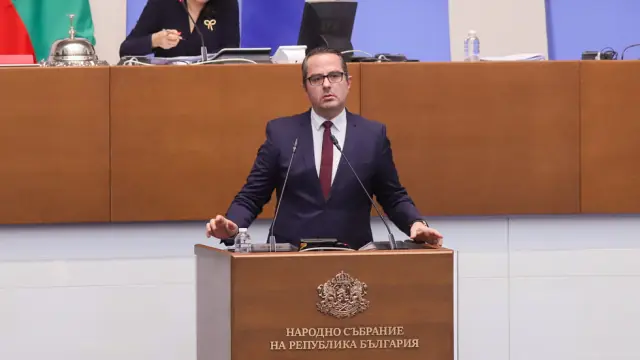
Sofia, Bulgaria – In a bold move that has stirred the political landscape, the Bulgarian right-wing party “Revival” (Vazrazhdane) has issued a stark warning that Bulgaria could become one of the initial targets in a potential Russian military strike. Consequently, the party is advocating for Bulgaria’s withdrawal from NATO.
Tsoncho Ganev, a prominent figure within the “Revival” parliamentary group, addressed the Bulgarian parliament with a dire prediction. According to Ganev, NATO is no longer just a defensive alliance but an active participant in the ongoing military conflict against Russia in Ukraine. This perception, Ganev argues, makes Bulgaria a high-risk target due to its NATO membership.
“NATO is not merely a defensive bloc; it is involved in a military campaign against Russia in Ukraine,” Ganev stated. He further called for a national referendum to determine Bulgaria’s continued membership in NATO, emphasizing that such a critical decision should rest with the Bulgarian people.
Ganev’s speech highlighted his belief that the conflict in Ukraine is drawing to a close, with Ukraine losing ground and a Russian victory appearing imminent. This assessment, he argued, increases the urgency for Bulgaria to reconsider its NATO membership to avoid being drawn into a potential escalation.
One of Ganev’s key points was the presence of a NATO command center in Varna, which has been operational for over four years. He cited this as a significant factor that could make Bulgaria a primary target in the event of a broader conflict with Russia. “The presence of NATO’s command center in Varna puts us in direct danger,” Ganev claimed, urging the government to take immediate action.
In his address to the parliament, Ganev called on Acting Prime Minister Dimitar Glavchev to provide clarity on Bulgaria’s stance regarding NATO. With an upcoming NATO Summit in Washington next month, Ganev stressed the importance of transparency and accountability in the government’s foreign policy decisions.
“While foreign policy decisions rest with the Council of Ministers, as a parliamentary republic, we have the right to know Bulgaria’s position,” Ganev remarked. He underscored the necessity for the government to present a clear and definitive stance on Bulgaria’s NATO membership ahead of the summit, emphasizing the right of the Bulgarian parliament and people to be informed.
The “Revival” party’s proposal for a national referendum reflects a broader sentiment of skepticism towards NATO within certain segments of the Bulgarian population. However, it also faces significant opposition from other political factions who argue that NATO membership is crucial for Bulgaria’s security and geopolitical stability.
As the debate over NATO continues, the Bulgarian government finds itself at a crossroads. The decision to either reaffirm its commitment to the alliance or consider an exit will have profound implications not only for Bulgaria’s security but also for its role in the broader geopolitical landscape.
With the NATO Summit on the horizon, the Bulgarian government must navigate this contentious issue carefully, balancing national security concerns with the diverse opinions of its citizens. The coming weeks will be critical in shaping Bulgaria’s future stance on its NATO membership and its position in the evolving European security framework.
